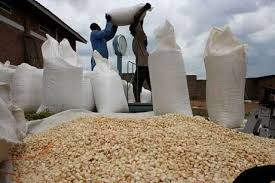The Zambian government has denied reports claiming it has signed a Memorandum of Understanding (MoU) with the Democratic Republic of the Congo (DRC) for the export of maize. Acting Minister of Agriculture Peter Kapala clarified on Friday that while Zambia has received export inquiries from the DRC and other neighboring countries, no formal agreement has been signed.
In a statement, Kapala emphasized that discussions are ongoing and any potential maize exports will be considered only after the country secures its national food security. “It must be made clear that currently, the government’s priority is to purchase maize from farmers in a bid to build up the country’s national strategic food reserves and open up satellite depots in areas where the moisture content has reached the required 12.5 percent,” he said.
The clarification comes in response to a Thursday statement from the Food Reserve Agency (FRA), which claimed it had entered into an agreement with the DRC to export one million metric tonnes of maize. Kapala refuted this, stressing that such exports will only be allowed once the FRA meets the necessary tonnage for strategic reserves.
Zambia’s maize production has seen a strong recovery during the 2024/2025 agricultural season, with output reaching 3.65 million metric tonnes. This rebound follows a challenging previous season marked by drought, which significantly affected agricultural yields. The country also holds a carryover stock of 384,999 metric tonnes from previous reserves, bringing the total available maize to just over 4 million metric tonnes.
With a national requirement of 3.54 million metric tonnes for both human consumption and industrial use — including strategic reserves — Zambia currently has a surplus of approximately 501,621 metric tonnes. This excess has sparked interest from neighboring countries like the DRC, eager to secure maize supplies.
However, Kapala reiterated that any export plans will be executed cautiously, prioritizing domestic food security and value addition. Exports, if approved, would likely take the form of mealie meal and other processed maize products rather than raw grain. This approach aligns with the government’s strategy to promote local processing and enhance economic returns.

